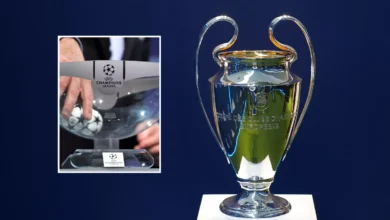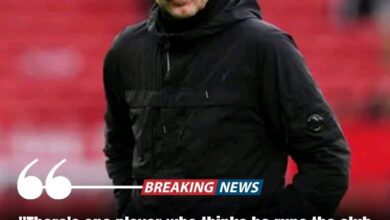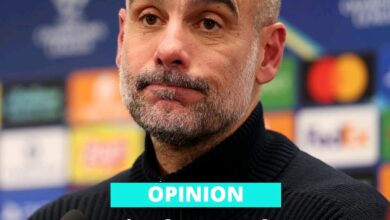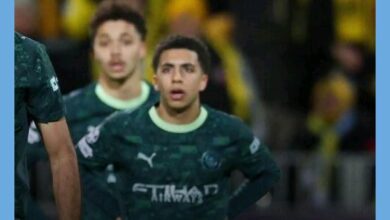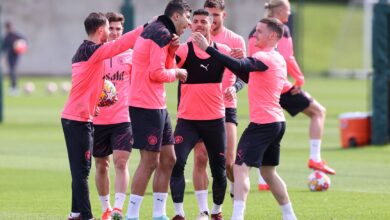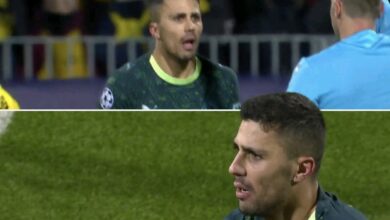Mikel Arteta Sack Verdict: Arsenal’s Champions League Exit Sparks Debate Over Manager’s Future

The Emirates Stadium fell silent as the final whistle confirmed Arsenal’s Champions League semi-final elimination at the hands of Paris Saint-Germain. Another season of promise had culminated in heartbreak, another campaign that began with genuine title aspirations had ended with the familiar sting of what might have been. For Mikel Arteta, standing on the touchline watching his players trudge off the pitch, it represented yet another moment where Arsenal had come tantalizingly close to major honors only to see them slip through their fingers at the crucial moment.
The defeat to PSG was particularly galling given the circumstances. Arsenal had matched their illustrious opponents across both legs, creating numerous chances and playing some scintillating football. Yet once again, the fine margins that separate success from failure in elite football had worked against them. The Gunners’ inability to convert their dominance into goals, combined with moments of defensive fragility, had cost them a place in the Champions League final against Inter Milan.
In the aftermath of the devastating defeat, Mikel Arteta cut a figure both proud and defiant. The Spanish manager, who has transformed Arsenal from also-rans into genuine contenders during his tenure, refused to accept that his team had been second-best over the course of the two-legged tie. His post-match assessment was both analytical and emotional, reflecting a manager who believed his team deserved better from football’s cruel lottery.
“I think we deserve much more,” Arteta declared, his voice carrying the weight of disappointment but also unwavering conviction. “When you analyse both games, who has been the best player, the MVP has been the same player, their goalkeeper. And the Champions League is decided in the boxes, and it’s won the game for them because obviously today after 20 minutes and what happened in London as well, the result should have been very different.”
These words encapsulated the frustration that has become all too familiar for Arsenal supporters in recent seasons. The sense that their team is capable of competing with Europe’s elite, that they possess the quality and tactical sophistication to win major trophies, but that crucial moments continue to elude them. Arteta’s reference to PSG’s goalkeeper being the standout performer across both legs highlighted Arsenal’s creative output and attacking intent, while simultaneously underlining their chronic inability to find the clinical edge required at the highest level.
The manager’s analysis wasn’t merely emotional rhetoric. Statistical evidence supported his claims that Arsenal had been the better team across the two legs. They had registered more shots, created higher-quality chances, and controlled larger portions of both matches. Yet football’s harsh reality is that dominance without decisive finishing counts for nothing, and PSG’s efficiency in crucial moments had earned them their place in the final
This Champions League elimination represented the continuation of a troubling pattern that has defined Arteta’s Arsenal tenure. The previous season had seen them finish second in the Premier League, their highest league position in years, yet the achievement felt hollow given how close they had come to their first title since 2004. Manchester City’s relentless consistency had ultimately denied them, but not before Arsenal had shown they belonged among England’s elite once again.
The recurring theme of coming close but falling short has become a source of intense debate among Arsenal supporters and football analysts alike. Some view these near misses as evidence of genuine progress, proof that Arteta has successfully rebuilt the club’s competitive foundation after years of decline following Arsène Wenger’s departure. Others see them as a glass ceiling that the current manager may be unable to break through, regardless of the obvious improvements he has implemented.
The psychological impact of these repeated disappointments cannot be understated. Each time Arsenal have reached a crucial juncture – whether in domestic or European competition – the weight of expectation and the memory of previous failures have seemed to influence key moments. The players, despite their evident quality and commitment to Arteta’s methods, appear to carry the burden of the club’s recent history of falling short when it matters most.
A significant factor in Arsenal’s inability to make the final step toward major honors has been their approach to the transfer market. Despite Arteta’s tactical acumen and ability to improve individual players, the squad has consistently lacked the depth and quality in key positions necessary to sustain challenges across multiple competitions.
The striker position has been a particular source of frustration. Arsenal’s failure to secure a world-class center-forward has hampered their ability to convert dominance into goals consistently. While players like Gabriel Jesus and Eddie Nketiah have contributed, neither possesses the elite finishing ability or physical presence that characterizes the strikers at Manchester City, Liverpool, or the top European clubs Arsenal aspire to match.
The January transfer window’s lack of significant additions, particularly the failure to address the striker shortage, proved costly as the season reached its climax. Injuries to key players exposed the squad’s limitations, with Arteta forced to rely on young players or adapt others to unfamiliar positions. The departure of sporting director Edu Gaspar midway through the season also disrupted the club’s transfer planning and long-term strategy.
Financial constraints have played a role in limiting Arsenal’s transfer activity. While the club has invested significantly in recent years, they have not been able to match the spending power of Manchester City, Chelsea, or even Newcastle United. This reality has forced Arteta to be creative in his squad building, focusing on developing young talents and improving existing players rather than acquiring established stars.
Despite the crushing disappointment of another semi-final exit, Arsenal supporters have largely rallied behind Arteta. The manager’s support base remains strong, with fans recognizing the substantial progress made since his appointment and the clear tactical identity he has instilled in the team.
Reader Garga’s comments reflected the frustration many fans feel about the club’s transfer policy rather than Arteta’s management: “Really disappointed especially after high hopes after those Madrid games. To fall off abysmally the way we did, in both legs, is really painful. Why not buy real players instead of those crumbs in Sterling and co. Are we the only poor club in world football? Disgusted. Can’t really put the blame on Arteta because I think he’s not been supported well.”
This sentiment was echoed by Parisrocker57, who provided historical perspective on Arsenal’s current position: “There’s a lot of clubs would love to be in the position Arsenal are. Be careful what you wish for. Look how we suffered when Wenger went, and then look down the leagues and see how many were once top flight clubs and where they are now. Our history speaks for itself, over 100 years in the top flight.”
The reference to Arsenal’s post-Wenger struggles resonates deeply with supporters who lived through the chaotic tenures of Unai Emery and the latter stages of Wenger’s reign. The dramatic improvement in playing style, defensive organization, and overall team cohesion under Arteta has not been forgotten, even amid current disappointments.
Lanadro’s response emphasized patience and long-term thinking: “Loss indeed, but the team improved up to this stage in spite of all the injuries and lack of natural strikers. I doubt other managers or teams could sustain such a situation. Yes, we are not there yet, but we will be. In Arteta we should all trust!”
To understand the current debate surrounding Arteta’s future, it’s essential to consider the state Arsenal were in when he arrived. The club had fallen well short of Champions League qualification for several consecutive seasons, playing uninspiring football and lacking any clear tactical identity. The atmosphere around the Emirates Stadium had become toxic, with supporters losing faith in the direction of the club.
Arteta’s appointment initially raised eyebrows given his lack of managerial experience, but his work as Pep Guardiola’s assistant at Manchester City had provided him with invaluable experience at the highest level. His immediate impact was evident in Arsenal’s FA Cup triumph in 2020, their first major trophy in over a decade, which demonstrated his ability to organize the team for big occasions.
The subsequent seasons have seen steady progress in league positions, playing style, and overall competitiveness. Arsenal have returned to the Champions League and established themselves as regular top-four contenders. The development of young players like Bukayo Saka, Emile Smith Rowe, and Gabriel Martinelli has been exemplary, while signings like Martin Ødegaard and Gabriel Jesus have enhanced the team’s technical ability.
The transformation of the Emirates Stadium atmosphere has been equally impressive. The introduction of new traditions like “The Angel” chant and the general renewal of optimism around the club has created a connection between team and supporters that had been missing for years. This cultural revival should not be underestimated when evaluating Arteta’s overall impact.
Arteta’s tactical approach has evolved significantly during his tenure, adapting to different challenges and learning from setbacks. His initial focus on defensive stability and set-piece prowess gradually developed into a more expansive, possession-based style that prioritizes quick combinations in the final third and aggressive pressing without the ball.
The development of Arsenal’s build-up play has been particularly impressive. The team’s ability to progress the ball through different phases of play, utilizing both short passing combinations and more direct approaches when appropriate, reflects Arteta’s sophisticated understanding of modern football. The integration of full-backs into attacking phases and the fluid movement of midfielders and forwards creates numerous problems for opposing defenses.
However, critics point to Arsenal’s occasional struggles in breaking down well-organized defensive blocks as evidence of tactical limitations. The team’s tendency to become predictable in the final third, particularly when facing teams that defend deep and compact, has been a recurring issue. This weakness becomes more pronounced in knockout competitions where opponents are willing to sacrifice attacking ambition for defensive solidity.
The psychological aspect of Arteta’s management has also drawn scrutiny. While his players clearly believe in his methods and show tremendous commitment to his tactical demands, questions remain about his ability to prepare the team mentally for the biggest occasions. The pattern of strong performances followed by crucial lapses suggests that work remains to be done in terms of developing the winning mentality required for major honors.
Arsenal’s financial position, while healthy compared to many clubs, does not allow for the kind of squad building that has characterized Manchester City’s dominance or Real Madrid’s European success. This reality means that Arteta must work within constraints that his counterparts at other elite clubs do not face.
The impact of injuries on Arsenal’s season has been significant, with key players missing crucial matches and forcing Arteta to adapt his tactical approach. The lack of like-for-like replacements in certain positions has been exposed repeatedly, particularly in the striker role and at left-back. These squad imbalances have directly contributed to disappointing results in crucial matches.
The club’s approach to contract renewals and player retention has also influenced squad stability. While core players like Saka and Ødegaard have committed their futures to Arsenal, uncertainty around other key figures has created an element of instability. The departure of experienced players without adequate replacements has forced younger players into roles they may not be ready for.
The Champions League elimination highlights the challenge facing Arsenal in balancing domestic and European ambitions. While returning to Europe’s premier competition represented significant progress, the demands of competing on multiple fronts exposed the squad’s limitations.
The tactical adjustments required for European football differ from those needed for Premier League success. The higher technical level, increased tactical sophistication, and greater physicality of Champions League opponents demand different approaches and squad rotation policies. Arteta’s relative inexperience in European competition may have contributed to some tactical decisions that ultimately proved costly.
However, the experience gained from this Champions League campaign should prove valuable for future European adventures. The players have faced elite opposition and largely held their own, gaining confidence and understanding that should serve them well in future seasons. The narrow margins that decided their elimination suggest that small improvements could yield significantly better results
The overwhelming sentiment among Arsenal supporters appears to favor continuity over change. While the disappointment of another near miss is palpable, the recognition of Arteta’s broader contributions to the club’s revival outweighs calls for his dismissal.
Mark Mark’s Facebook comment encapsulated this perspective: “Arteta isn’t the problem, get a top striker who can score goals for us. Give the opposition someone to worry about, instead of us worrying about if we have a player that can score those goals. Amazes me that again we get top four in the Premier League, are semi-finalists in Champions League and most of the season we were without an on-form striker. Imagine what we could do if we did have a striker.”
This analysis identifies the core issue: Arsenal’s problems are not primarily tactical or motivational but structural. The squad lacks the elite-level depth and quality in key positions necessary to compete consistently for major honors. Solving this problem requires investment and smart recruitment rather than managerial change.
Carol Perkins’ tribute to Arteta’s broader impact highlighted aspects of his tenure that extend beyond mere results: “Arteta has turned this club around. Given us all something to cheer about, filled out the stadium on match days, introduced The Angel for us all to sing to. Injuries and Edu leaving was a massive stumbling block and probably the reason we failed to sign a striker in January. I still have faith in him.”
The upcoming transfer window represents a crucial test of Arsenal’s ambitions and Arteta’s future prospects. The club’s ability to address glaring squad weaknesses, particularly in attack, will significantly influence their chances of making the final step toward major honors.
The striker market offers several potential solutions, though the club’s financial constraints may limit their options. The need for a clinical finisher who can convert the chances Arsenal consistently creates has never been more apparent. Similarly, adding depth in defensive positions and potentially upgrading in midfield could provide the squad balance necessary for sustained success.
Arteta’s role in these transfer decisions will be crucial. His ability to identify targets who fit Arsenal’s tactical system and culture, combined with his influence in persuading players to join the project, could determine whether the club can finally break through their current ceiling.
The manager’s contract situation also adds an element of urgency to these decisions. While he remains committed to Arsenal’s project, the lack of tangible success in terms of major trophies could eventually test his patience and ambition. Ensuring he has the tools necessary to compete at the highest level should be the club’s priority.
Arsenal’s Champions League elimination to PSG represents another chapter in the ongoing story of their gradual revival under Mikel Arteta. While the immediate disappointment is acute, the broader trajectory suggests a club moving in the right direction despite the frustration of repeated near misses.
The fan verdict appears clear: Arteta retains the support necessary to continue his project. The recognition that Arsenal’s limitations are primarily structural rather than tactical or motivational provides a foundation for optimism about future progress. The manager’s tactical sophistication, ability to develop players, and success in creating a positive culture around the club outweigh the disappointment of individual results.
However, the upcoming season represents a crucial test. Arsenal cannot continue to come close without eventually delivering tangible success. The psychological impact of repeated disappointments could eventually undermine confidence and ambition if not addressed through smart recruitment and tactical refinement.
The summer transfer window will be telling. If Arsenal can address their most obvious weaknesses and provide Arteta with the tools necessary to compete consistently for major honors, another season of progress seems likely. If they fail to strengthen adequately, questions about the manager’s ceiling and the club’s ambitions will inevitably resurface.
For now, Arsenal supporters appear willing to maintain faith in Arteta’s process, recognizing that building a championship-winning team requires patience, investment, and time. The foundation he has established provides reason for optimism, even amid the disappointment of another season ending without silverware. The question remains whether that patience will be rewarded with the major honors that have remained tantalizingly out of reach.







